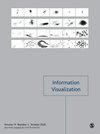ProtoExplorer:利用原型探索和改进对深度伪造视频进行可解释的取证分析
IF 1.8
4区 计算机科学
Q3 COMPUTER SCIENCE, SOFTWARE ENGINEERING
引用次数: 0
摘要
在高风险环境中,能够提供可为人类解释的预测的机器学习模型至关重要。随着具有大量可调参数的基于深度学习的复杂模型的出现,情况更是如此。最近,基于原型的方法已成为使深度学习具有可解释性的一种有前途的方法。我们尤其关注在取证背景下对深度伪造视频的分析。虽然基于原型的方法已被引入到深度伪造视频的检测中,但它们在真实世界场景中的应用仍面临着重大挑战,因为原型往往过于相似,而且不同原型之间的可解释性也不尽相同。本文提出了一种用于原型学习的可视化分析流程模型,并在此基础上介绍了用于探索和完善基于原型的深度防伪检测模型的可视化分析系统 ProtoExplorer。ProtoExplorer 提供了在处理视频数据时对基于原型的预测进行可视化和时间过滤的工具。ProtoExplorer 可消除处理时空原型的复杂性,促进其可视化。通过交互式删除和替换原型,该系统还能进一步完善模型,从而在保持检测准确性的同时,获得更易于解释、偏差更小的预测结果。该系统由法医专家共同设计,并在开放式思考评估和访谈的基础上进行了多轮评估。这些评估证实了我们基于原型探索深度伪造视频的能力,同时也提供了不断改进系统所需的反馈。本文章由计算机程序翻译,如有差异,请以英文原文为准。
ProtoExplorer: Interpretable forensic analysis of deepfake videos using prototype exploration and refinement
In high-stakes settings, Machine Learning models that can provide predictions that are interpretable for humans are crucial. This is even more true with the advent of complex deep learning based models with a huge number of tunable parameters. Recently, prototype-based methods have emerged as a promising approach to make deep learning interpretable. We particularly focus on the analysis of deepfake videos in a forensics context. Although prototype-based methods have been introduced for the detection of deepfake videos, their use in real-world scenarios still presents major challenges, in that prototypes tend to be overly similar and interpretability varies between prototypes. This paper proposes a Visual Analytics process model for prototype learning, and, based on this, presents ProtoExplorer, a Visual Analytics system for the exploration and refinement of prototype-based deepfake detection models. ProtoExplorer offers tools for visualizing and temporally filtering prototype-based predictions when working with video data. It disentangles the complexity of working with spatio-temporal prototypes, facilitating their visualization. It further enables the refinement of models by interactively deleting and replacing prototypes with the aim to achieve more interpretable and less biased predictions while preserving detection accuracy. The system was designed with forensic experts and evaluated in a number of rounds based on both open-ended think aloud evaluation and interviews. These sessions have confirmed the strength of our prototype-based exploration of deepfake videos while they provided the feedback needed to continuously improve the system.
求助全文
通过发布文献求助,成功后即可免费获取论文全文。
去求助
来源期刊

Information Visualization
COMPUTER SCIENCE, SOFTWARE ENGINEERING-
CiteScore
5.40
自引率
0.00%
发文量
16
审稿时长
>12 weeks
期刊介绍:
Information Visualization is essential reading for researchers and practitioners of information visualization and is of interest to computer scientists and data analysts working on related specialisms. This journal is an international, peer-reviewed journal publishing articles on fundamental research and applications of information visualization. The journal acts as a dedicated forum for the theories, methodologies, techniques and evaluations of information visualization and its applications.
The journal is a core vehicle for developing a generic research agenda for the field by identifying and developing the unique and significant aspects of information visualization. Emphasis is placed on interdisciplinary material and on the close connection between theory and practice.
This journal is a member of the Committee on Publication Ethics (COPE).
 求助内容:
求助内容: 应助结果提醒方式:
应助结果提醒方式:


